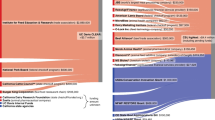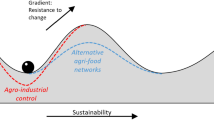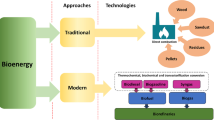Abstract
The biofuel boom is placing enormous demands on existing cropping systems, with the most crucial consequences in the agri-food sector. The biofuel industry is responding by initiating private governance and certification. The Roundtable on Sustainable Palm Oil (RSPO) and the Cramer Commission, among others, have formulated criteria on “sustainable” biofuel production and processing. This article explores the legitimacy of private governance and certification by the biofuel industry, highlighting opportunities and challenges. It argues that the concept of output based legitimacy is problematic in the case of biofuel as long as no consensus or commonly agreed “best” solution has been established on what sustainable biofuel production is. Furthermore, it shows that the private governance initiatives analyzed fail to adequately include actors from developing countries. Finally, the article argues that we need mechanisms for control and accountability in order to guarantee that the political output of biofuel certification serves the common welfare.

Similar content being viewed by others
References
Beisheim, Marianne. 2004. Fit für Global Governance. Transnationale Interessengruppenaktivitäten als Demokratisierungspotenzial – am Beispiel der Klimapolitik. Opladen: Leske + Budrich.
Bernstein, Steven, and Benjamin Cashore. 2007. Can non-state global governance be legitimate? An analytical framework. Regulation and Governance 4: 1–25.
Bingen, Jim, and Lawrence Busch (eds.). 2006. Agricultural standards: The shape of the global food and fiber system. New York: Springer.
BMU. 2008. Gabriel: Nur nachhaltig angebautes Palmöl kann Beitrag zum Klimaschutz leisten. Studie zu den Folgen der Palmöl-Nutzung vorgelegt, BMU-Pressedienst Nr. 026/08, Berlin, 21 February 2008.
Brozus, Lars, Ingo Take, and Klaus Dieter Wolf. 2003. Vergesellschaftung des Regierens. Der Wandel nationaler und internationaler politischer Steuerung unter dem Leitbild der nachhaltigen Entwicklung. Opladen: Leske+Budrich.
Busch, Lawrence. 2000. The moral economy of grades and standards. Journal of Rural Studies 16: 273–283.
Cramer Commission. 2006. Project group Sustainable production of biomass. Criteria for sustainable biomass Production. Final report of the Project group ‘Sustainable production of biomass’, July 14th 2006. http://www.forum-ue.de/bioenergy/txtpdf/project_group_netherlands_criteria_for_biomass_production_102006bonn.pdf. Accessed 3 March 2008.
Cramer Commission. 2007. Testing framework for sustainable biomass. Final report from the project group “Sustainable production of biomass”, February 2007. http://www.lowcvp.org.uk/assets/reports/070427-Cramer-FinalReport_EN.pdf. Accessed 3 March 2008.
Cutler, Claire A. 2002. Private international regimes and interfirm cooperation. In The emergence of private authority in global governance, ed. Rodney Bruce Hall, and Thomas J. Biersteker, 23–40. Cambridge: Cambridge University Press.
Dobner, Petra. 2007. Did the state fail? Zur Transnationalisierung und Privatisierung der öffentlichen Daseinsvorsorge am Beispiel der globalen Trinkwasserpolitik. In Staat und Gesellschaft - fähig zur Reform? Der 23. wissenschaftliche Kongress der Deutschen Vereinigung für Politikwissenschaft, ed. Klaus Dieter Wolf, 247–261. Baden-Baden: Nomos.
Dryzek, John S. 2000. Deliberative democracy and beyond. Liberals, critics, contestations. Oxford: Oxford University Press.
European Commission. 2001. European governance. A White Paper, COM (2001) 428, Brussels. http://ec.europa.eu/governance/white_paper/en.pdf. Accessed 3 March 2008.
FAS. 2008. Explosionsgefahr. Hunger in Afrika. 10 April 2008. Frankfurter Allgemeine Sonntagszeitung.
FoE. 2007a. World’s biggest palm oil trader shamed. Company involved in forest fires, deforestation and illegal activities, Press Release. 3 July 2007. http://www.foeeurope.org/press/2007/July3_PDC_Wilmar_PalmOil.htm. Accessed 3 March 2008.
FoE. 2007b. RSPO: Stop destructive Palm Oil. EU must say no to palm oil for energy and transport fuel, Press Release. 9 October 2007. http://www.foeeurope.org/press/2007/Oct9_PDC_RSPO.htm. Accessed 3 March 2008.
Fuchs, Doris. 2006. Power in Global Food Governance. A Basis for Sustainable Consumption and Production?, Proceedings: Sustainable Consumption and Production: Opportunities and Threats, 23–25 November 2006, Wuppertal. http://www.uni-stuttgart.de/soz/ib/mitarbeiter/arbeitspapiere.global.food.governance.pdf. Accessed 3 March 2008.
Geibler, Justus von. 2007. Biomassezertifizierung unter Wachstumsdruck; Wie wirksam sind Nachhaltigkeitsstandards bei steigender Nachfrage? Diskussion am Beispiel der Wertschöpfungskette Palmöl. Wuppertal: Wuppertal Paper 168/2007.
Humphrey, John. 2008. Private standards, small farmers and donor policy: EUREPGAP in Kenya. Institute of Development Studies, IDS Working Paper 308. Brighton: University of Sussex. http://www.ids.ac.uk/ids/bookshop/wp/wp308.pdf. Accessed 14 March 2009.
Hunt, Suzanne C., Janet L. Sawin, and Peter Stair. 2006. Cultivating renewable alternatives to oil. In State of the World 2006, ed. Worldwatch Institute, 61–77. Washington, DC.
Kahler, Miles, and David A. Lake (eds.). 2003. Global governance in a global economy. Political authority in transition. Princeton: Princeton University Press.
Keohane, Robert O., and Joseph S. Nye. 2003. Redefining accountability for global governance. In Global governance in a global economy. Political authority in transition, ed. Miles Kahler, and David A. Lake, 386–411. Princeton, Oxford: Princeton University Press.
Lewandowski, Iris, and André P.C. Faaij. 2006. Steps towards the development of a certification system for sustainable bio-energy trade. Biomass and Bioenergy 30: 83–104.
Majone, Giandomenico. 1999. The regulatory state and its legitimacy problems. West European Politics 22: 1–24.
McNeely, Jeff. 2008. Biofuels, biodiversity and energy security: What are the environmental and social impacts? Presentation to SCOPE Conference on Biofuels, Gummersbach, http://www.eeb.cornell.edu/howarth/SCOPEBiofuels_Germany2008.html. Accessed 16 March 2009.
Messner, Dirk, and Franz Nuscheler. 2003. Das Konzept global governance. Stand und Perspektiven, Duisburg: INEF-Report.
Mol, Arthur P.J. 2007. Boundless biofuels? Between vulnerability and environmental sustainability. Sociologia Ruralis 47: 297–315.
Nanz, Patrizia, and Jens Steffek. 2005. Legitimation Durch deliberation? Die Rolle der Zivilgesellschaft in der supranationalen Politik. In Europäische Zivilgesellschaft. Konzepte, Akteure, Strategien, ed. Michèle Knodt, and Barbara Finke, 79–102. Wiesbaden: VS.
United Nations. 2007. Sustainable bioenergy: A framework for decision makers. New York: UN.
Partzsch, Lena. 2007. Global Governance in Partnerschaft. Die EU-Initiative ‚Water for Life’. Baden-Baden: Nomos.
Rechkemmer, Andreas, and Falk Schmidt. 2006. Neue globale Umweltpolitik. Die Bedeutung der UN-Reform für eine nachhaltige Wasser- und Waldpolitik. Berlin: Erich Schmidt.
Rosenau, James N. 1992. Governance, order and change in world politics. In Governance without government: Order, change in world politics, ed. Ernst-Otto Czempiel, and James N. Rosenau, 1–29. Cambridge: Cambridge University Press.
Rousseau, Jean-Jacques. 1998 according to 1757. Gesellschaftsvertrag. Stuttgart: Reclam.
RSPO. 2004a. Statutes. http://www.rspo.org/PDF/RSPO%20Statutes.pdf. Accessed 3 March 2008.
RSPO. 2004b. RSPO grievance process. http://www.rspo.org/resource_centre/RSPO%20Grievance%20Procedure.pdf. Accessed 3 March 2008.
RSPO. 2007. RSPO principles and criteria for sustainable palm oil production including indicators and guidance, October 2007. http://www.rspo.org/resource_centre/RSPO%20Principles%20&%20Criteria%20Document.pdf. Accessed 3 March 2008.
Scharpf, Fritz W. 1999. Governing in Europe: Effective and democratic?. Oxford: Oxford University Press.
Scharpf, Fritz W. 2000. Interaktionsformen. Akteurszentrierter Institutionalismus in der Politikforschung. Opladen: Leske+Budrich.
Schmitter, Philippe C. 2001. What is there to legitimize the European Union … and how might this be accomplished. Florenz: Europäisches Hochschulinstitut. http://www.iue.it/SPS/People/Faculty/CurrentProfessors/PDFFiles/SchmitterPDFfiles/LegitimizeEU.pdf. Accessed 3 March 2008.
Steffek, Jens. 2003. The legitimation of international governance: A discourse approach. European Journal of International Relations 2: 249–275.
Strange, Susan. 1996. The retreat of the state. The diffusion of power in the world economy. Cambridge: Cambridge University Press.
Stupak, Inge, A. Asikainen, M. Jonsell, et al. 2007. Sustainable utilisation of forest biomass for energy – Possibilities and problems: Policy, legislation, certification, and recommendations and guidelines in the Nordic, Baltic, and other European countries. Biomass and Bioenergy 31: 666–684.
Take, Ingo. 2009. Legitimes Regieren jenseits des Nationalstaats. Unterschiedliche Formen von Global Governance im Vergleich. Baden-Baden: Nomos.
Witte, Martin, and Wolfgang Reinicke. 2005. Business as unusual. Facilitating United Nations Reform through Partnerships. New York: United Nations Global Compact Office.
Zeddies, Jürgen. 2007. Agrarmärkte und Bioenergie, KWS Energiepflanzenkolloquium 2007, 5 November 2007. Universität Hohenheim.
Ziegler, Jean. 2008. Report of the Special Rapporteur on the right to food. UN Human Rights Council, GE.08-10098 (E) 180108. http://www.humanrights.ch/home/upload/pdf/080311_bericht_ziegler.pdf. Accessed 3 March 2008.
Zürn, Michael. 1998. Regieren jenseits des Nationalstaats. Frankfurt/Main: Suhrkamp.
Acknowledgement
The author would like to thank Sara Hughes and Karin Frank for helpful comments.
Author information
Authors and Affiliations
Corresponding author
Rights and permissions
About this article
Cite this article
Partzsch, L. The legitimacy of biofuel certification. Agric Hum Values 28, 413–425 (2011). https://doi.org/10.1007/s10460-009-9235-4
Received:
Accepted:
Published:
Issue Date:
DOI: https://doi.org/10.1007/s10460-009-9235-4




